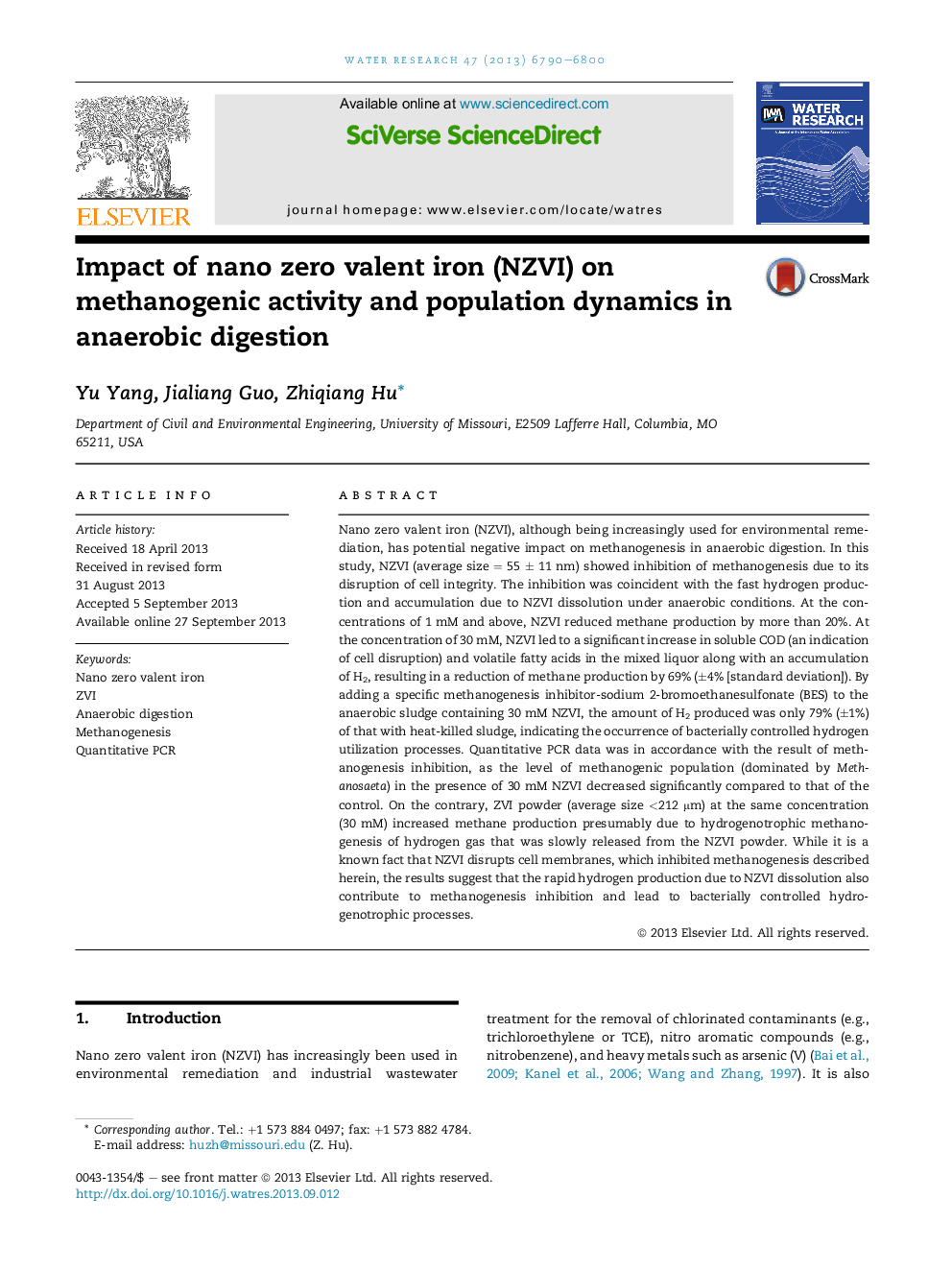| Article ID | Journal | Published Year | Pages | File Type |
|---|---|---|---|---|
| 4481929 | Water Research | 2013 | 11 Pages |
•A first-time comparison of anaerobic digestion affected by NZVI and ZVI powder.•ZVI powder at the concentration of 30 mM increased methane production.•NZVI inhibited methanogenic growth and methane production at 1 mM and above.•NZVI dissolution led to rapid production and accumulation of H2 in anaerobic digestion.•The inhibition was due to disruption of cells and coincident with rapid H2 production from NZVI.
Nano zero valent iron (NZVI), although being increasingly used for environmental remediation, has potential negative impact on methanogenesis in anaerobic digestion. In this study, NZVI (average size = 55 ± 11 nm) showed inhibition of methanogenesis due to its disruption of cell integrity. The inhibition was coincident with the fast hydrogen production and accumulation due to NZVI dissolution under anaerobic conditions. At the concentrations of 1 mM and above, NZVI reduced methane production by more than 20%. At the concentration of 30 mM, NZVI led to a significant increase in soluble COD (an indication of cell disruption) and volatile fatty acids in the mixed liquor along with an accumulation of H2, resulting in a reduction of methane production by 69% (±4% [standard deviation]). By adding a specific methanogenesis inhibitor-sodium 2-bromoethanesulfonate (BES) to the anaerobic sludge containing 30 mM NZVI, the amount of H2 produced was only 79% (±1%) of that with heat-killed sludge, indicating the occurrence of bacterially controlled hydrogen utilization processes. Quantitative PCR data was in accordance with the result of methanogenesis inhibition, as the level of methanogenic population (dominated by Methanosaeta) in the presence of 30 mM NZVI decreased significantly compared to that of the control. On the contrary, ZVI powder (average size <212 μm) at the same concentration (30 mM) increased methane production presumably due to hydrogenotrophic methanogenesis of hydrogen gas that was slowly released from the NZVI powder. While it is a known fact that NZVI disrupts cell membranes, which inhibited methanogenesis described herein, the results suggest that the rapid hydrogen production due to NZVI dissolution also contribute to methanogenesis inhibition and lead to bacterially controlled hydrogenotrophic processes.
Graphical abstractFigure optionsDownload full-size imageDownload high-quality image (282 K)Download as PowerPoint slide
